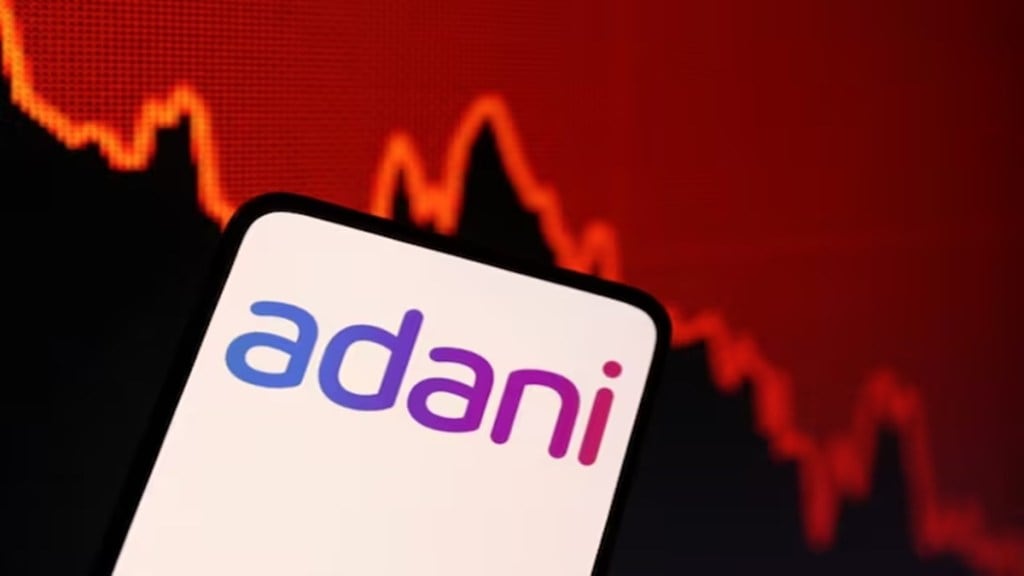About 93% of Adani Green Energy (AGEL)’s portfolio has executed power purchase agreements (PPA) with government-owned entities such as Solar Energy Corporation of India (SECI) NTPC, NHPC and state power distribution companies (discoms).
AGEL primarily serves B2B customers such as state utilities and discoms. AGEL has entered into long-term PPAs with discoms to offtake the generated power, the company said in FY24 annual report.
In the indictment, US prosecutors said Adani group chairman Gautam Adani and executives offered to pay bribes to government officials to get state discoms enter into contracts with the SECI to obtain business.
According to the US court filings, following the promise of bribes to government officials, distribution companies in Odisha, Jammu and Kashmir, Tamil Nadu, Chhattisgarh and Andhra Pradesh entered into power sale agreements (PSAs) with the SECI between July 2021 and February 2022.
Andhra Pradesh’s electricity distribution companies entered into a PSA with the SECI on December 1, 2021, pursuant to which the state agreed to purchase nearly 7 GW of solar power.
In September this year, Adani won the bid to supply 6,600 MW of hybrid solar and thermal power in Maharashtra.
Rise of the company
In early 2016, Adani Green had a single power project with generating capacity of 20 MW. Over the next three years, it grew the business, and by the end of 2018, had entered into long-term contracts pursuant to which it intended to expand its renewable power generating capacity to 1,998 MW, or 1.998 GW, the US SEC said.
The company launched an IPO in 2018.
In 2019, in its annual report, Adani Green said by 2022, it intended to develop a portfolio that will produce 10 GW of renewable power – five times the size of its portfolio at the end of 2018 – and that it was the “best positioned” company “to tap (the) Indian large renewable energy opportunity”.
Last year, the company claimed to become the first Indian firm to cross 10,000 MW of operational renewable energy capacity. It also revised its target from 45 GW to 50 GW by 2030. Currently, it has an operational capacity of 11.8 GW.
In FY24 annual report, the company said it had been growing capacities by adding new projects. In FY15-16, it developed a solar project in Kamuthi, Tamil Nadu, having a capacity of 648 MW. In FY23, the Rajasthan solar project had three times the capacity of the TN project at 2.1 GW, while the one in Khavda, Gujarat, had 30-GW capacity.
The company also plans to develop more than 5 GW of pumped storage projects in Maharashtra, Tamil Nadu, Andra Pradesh and Telangana.
It said between FY19 and FY24, the capacity grew at a 41% CAGR, and between FY24 and FY30, the same will expand at a 29% CAGR.
Adani Green Energy is looking at a earnings before interest, taxes, depreciation and amortization (EBITDA) of Rs 50,000 crore by 2030.
“If you look at Rs 80-90 lakh per MW, we are looking at EBITDA of Rs 50,000 crore,” Sagar Adani, executive director at Adani Green, said during a recent media interaction. The company reported an EBITDA of Rs 10,462 crore in FY24. It is looking to invest Rs 2 trillion by 2030 to achieve its target of 50 GW, Adani said.
Meanwhile, Azure Power launched its IPO in October 2016 and listed on the New York Stock Exchange. On November 13, 2023, its shares got delisted from the NYSE.
The company executed PPAs with the SECI for a 150 MW solar-wind hybrid project and a 120 MW wind project in FY23. At present, the estimated commissioning timelines for the wind project is July 2025 while the same for the solar-wind hybrid project is November 2025.
The company builds and operates large grid-scale solar, wind and hybrid projects across India which supply energy to government utilities.
Azure Power developed the country’s first utility scale solar project in 2009. It has a total renewable energy portfolio of over 4.3 GW, of which over 3 GW is operational.
Azure Power has a pipeline of 967 MW for which letters of award were issued and PPAs are yet to be signed with the SECI, CFO Sugata Sircar said in an interview last month. REC recently refinanced its green bonds worth over Rs 2,500 crore.
